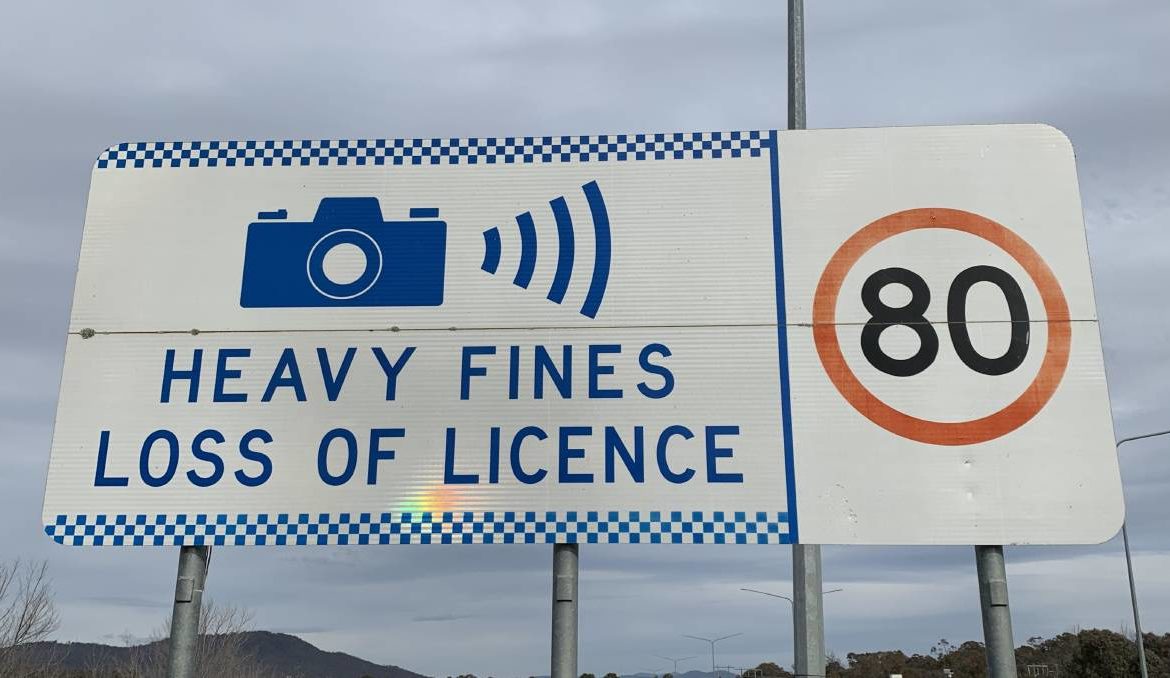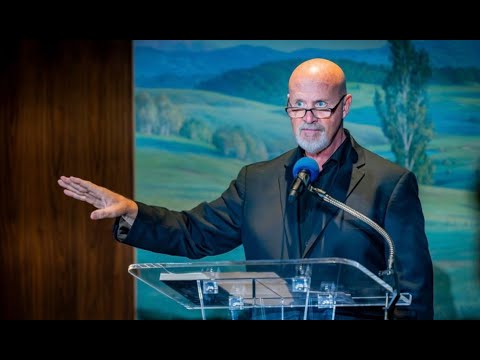news, act-politics, speeding, court, legal challenge, traffic infringement, speed cameras
An ACT magistrate has reserved his decision in an important test case over a computer systems fault which resulted in 593 incorrectly dated speeding infringement notices being issued to motorists during February and March last year. The ACT government consistently has claimed the fixed camera infringement notices remained valid even though the dates and times on the images were incompatible with those on the automatically issued notices. The government admitted the systems error occurred between February 29 to March 13 last year. However, at least one person who contacted The Canberra Times received his notice dated March 28, a full 15 days later than that admitted by Access Canberra. At the time of the malfunction, it was claimed that the computer system which processes the notices had not been incorrectly programmed and failed to account for the 2020 leap year. However, the government maintained the error did not invalidate the infringement, and “the primary evidence regarding the offence is the image which has the correct date, [therefore] the Access Canberra Infringement Office will uphold the infringement”. “Motorists can see photographs of their offence online at Access Canberra. Therefore, the infringement notices will not be reissued,” the directorate said in a statement at the time. The NRMA urged the ACT government to be transparent about the issue because “the system has to be 100 per cent accurate for people to have confidence in it, or the effectiveness of the system diminishes very quickly”. “If there has been a technical glitch – as this appears – then the cameras should be immediately turned off, the system fully audited, and the results made public,” NRMA spokesman Peter Khoury said. No review was forthcoming, with the government further claiming its legal advice on the issue was confidential and would not be publicly disclosed. Until Tuesday, none of the hundreds of people issued with infringements had been willing to legally challenge the government’s brazenly confident position. However, enter Dennis Levy, a farmer and retired engineer from the tiny township of Warri, near Braidwood, who was determined to have his day in court. A self-represented plaintiff, he appeared before Magistrate James Lawton on Tuesday to challenge a traffic camera speeding infringement notice issued on March 17 last year. As the case opened in the ACT Magistrates Court, public prosecutor Luke Crocker quickly sought two amendments under Section 28 of the ACT Magistrates Act, which empowers the presiding magistrate to amend information supplied, should it be “desirable or to be necessary to enable the real question in dispute to be decided”. However, the same section of the Act says that such amendments “cannot be made without injustice to the defendant”. Mr Crocker told the court that the correct date appears on the original camera image therefore “I can’t see how there would be any injustice”. However, Mr Levy maintained that there had been a “clear abuse of process”, submitting a timeline of correspondence between himself and Access Canberra in which he sought to have the infringement notices re-issued with the new date. This did not occur. Under the ACT Road Transport Act (General), it states that a person who disputes liability for the infringement notice may do so through a written notice to the issuing authority, which Mr Levy told the court he did on the same day he received it. However, the authority failed to respond to him within the Act’s stipulated 28 day period from when the offence occurred. “As a result, I have been denied due process,” Mr Levy said. Mr Lawton told the prosecutor that by proposing amendments he was “making an application to amend a very fundamental element of the charge” and that in his view “some weight must be carried” by Mr Levy’s submission. “If I refuse the amendment, your [the prosecution’s] case fails,” Mr Lawton said. He gave leave for the prosecution to file further submissions to support its case by April 23, and undertook to give a decision on the matter on May 7. Outside the court, Mr Levy said that he had acted promptly and in good faith in responding to Access Canberra to seek a re-issue of the notice, but had not received the same courtesy from the government. It is unknown how many affected motorists may have lost their licences as a result of demerit point deductions, had their employment affected, or were placed in financial hardship as a result of the now legally questionable speeding infringements. Our journalists work hard to provide local, up-to-date news to the community. This is how you can continue to access our trusted content:
/images/transform/v1/crop/frm/ZBtA3uhzm786CWHKXPpjK4/89097d9b-14c9-46a4-990b-8945b962203c.jpg/r10_376_4022_2643_w1200_h678_fmax.jpg
An ACT magistrate has reserved his decision in an important test case over a computer systems fault which resulted in 593 incorrectly dated speeding infringement notices being issued to motorists during February and March last year.
The government admitted the systems error occurred between February 29 to March 13 last year.
However, at least one person who contacted The Canberra Times received his notice dated March 28, a full 15 days later than that admitted by Access Canberra.
At the time of the malfunction, it was claimed that the computer system which processes the notices had not been incorrectly programmed and failed to account for the 2020 leap year.
Canberra’s fixed traffic camera system had a major malfunction in February and March last year, resulting in hundreds of incorrectly issued infringement notices. Picture: Peter Brewer
However, the government maintained the error did not invalidate the infringement, and “the primary evidence regarding the offence is the image which has the correct date, [therefore] the Access Canberra Infringement Office will uphold the infringement”.
“Motorists can see photographs of their offence online at Access Canberra. Therefore, the infringement notices will not be reissued,” the directorate said in a statement at the time.
“If there has been a technical glitch – as this appears – then the cameras should be immediately turned off, the system fully audited, and the results made public,” NRMA spokesman Peter Khoury said.
No review was forthcoming, with the government further claiming its legal advice on the issue was confidential and would not be publicly disclosed.
Until Tuesday, none of the hundreds of people issued with infringements had been willing to legally challenge the government’s brazenly confident position.
However, enter Dennis Levy, a farmer and retired engineer from the tiny township of Warri, near Braidwood, who was determined to have his day in court.
A self-represented plaintiff, he appeared before Magistrate James Lawton on Tuesday to challenge a traffic camera speeding infringement notice issued on March 17 last year.
As the case opened in the ACT Magistrates Court, public prosecutor Luke Crocker quickly sought two amendments under Section 28 of the ACT Magistrates Act, which empowers the presiding magistrate to amend information supplied, should it be “desirable or to be necessary to enable the real question in dispute to be decided”.
However, the same section of the Act says that such amendments “cannot be made without injustice to the defendant”.
Mr Crocker told the court that the correct date appears on the original camera image therefore “I can’t see how there would be any injustice”.
However, Mr Levy maintained that there had been a “clear abuse of process”, submitting a timeline of correspondence between himself and Access Canberra in which he sought to have the infringement notices re-issued with the new date. This did not occur.
Under the ACT Road Transport Act (General), it states that a person who disputes liability for the infringement notice may do so through a written notice to the issuing authority, which Mr Levy told the court he did on the same day he received it.
However, the authority failed to respond to him within the Act’s stipulated 28 day period from when the offence occurred.
“As a result, I have been denied due process,” Mr Levy said.
Mr Lawton told the prosecutor that by proposing amendments he was “making an application to amend a very fundamental element of the charge” and that in his view “some weight must be carried” by Mr Levy’s submission.
“If I refuse the amendment, your [the prosecution’s] case fails,” Mr Lawton said.
He gave leave for the prosecution to file further submissions to support its case by April 23, and undertook to give a decision on the matter on May 7.
Outside the court, Mr Levy said that he had acted promptly and in good faith in responding to Access Canberra to seek a re-issue of the notice, but had not received the same courtesy from the government.
It is unknown how many affected motorists may have lost their licences as a result of demerit point deductions, had their employment affected, or were placed in financial hardship as a result of the now legally questionable speeding infringements.
Our journalists work hard to provide local, up-to-date news to the community. This is how you can continue to access our trusted content:







